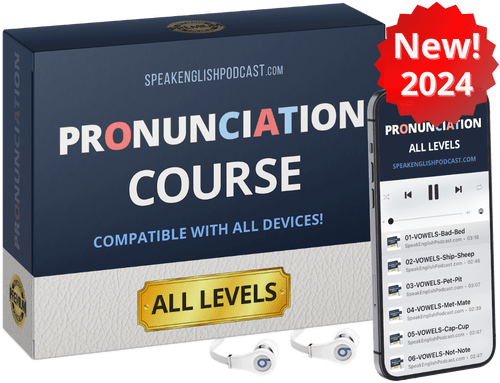Welcome to the Speak English Now Podcast, your resource for practicing your English speaking and listening. You will also learn about lifestyle and culture, language, vocabulary, and how to learn English more effectively.
Transcript:
Hi, everybody! I am Georgiana, your English teacher and founder of SpeakEnglishPodcast.com. My mission is to help you speak English fluently.
In this episode:
- I’ll be talking about passive listening, or in other words, listening in the background.
- Later on, we’ll practice conversation skills with the powerful Question & Answer technique.
Ok, let’s get started!
In the language industry, there’s an approach called passive listening. This means playing some English in the background while performing other tasks. In theory, you’re learning because the brain is always learning, no matter how.
Interesting, huh? You just need to play some English while you’re cleaning, jogging, surfing the Internet, etc.
Well, although this approach may be appealing to many of you, here’s the bad news: It doesn’t work as a whole system for developing a complete fluency in English.
The main drawback is that when we need to learn new content, our brain needs to pay attention, to be active.
So, in an ideal world, we would be 100% focused all the time while listening: We’d pay attention to every tiny detail: vocabulary, pronunciation, intonation, etc.
However, as you may already know, idyllic things are sometimes hard to achieve. If you need perfect conditions every time you listen: for example, feeling rested, motivated, in a quiet place, then you will never start listening.
What you need is a compromise. It’s ok to lose concentration from time to time.
Here’s my suggestion: For new content, try to maintain your concentration as much as possible.
However, when you’re repeating the same content, you don’t need to focus 100% of your attention anymore because, in this case, you’re just remembering and consolidating.
Another aspect to keep in mind: in this case, quantity is more important than quality. It means that when you listen for two hours, and you only focus on 70% of your attention, it’s still more efficient than when you’re listening for only 20 minutes, and you succeed to focus 100%.
The accumulation of hours and hours of listening, it’s what truly helps you to become fluent.
Just think about children. They’re not always focused when they listen, but they always learn.
My takeaway for today is: Try to listen as much as you can. Being focused is essential when you’re learning new content, but when you’re already familiar with the material, what matters the most, it’s the amount of time you spend listening.
(END OF THE EXTRACT).
Get the transcript in PDF here.
Resources:
- Audio MP3 (right-click to save the audio)
- Transcript Episode PDF (right-click to save the transcript)



0 Comments